The Real Life Stories Behind Kung Fu Movie Legends
We dig into the lives of Wong Fei-Hung, Ip Man, San Te, Huo Yuanjia and more, as we look at the people who inspired classic kung-fu movies.
While martial arts films can often be outlandish or fantasy-themed, there are many rooted in true stories of kung fu through the ages. They take liberties with the truth sometimes but these are films that praise the achievements of real life masters who’ve reached an almost legendary status. Several of them appear in many films – and have been played by some of the greatest onscreen martial artists – so this month in our martial arts special, we’re taking a look at the real people who inspired some classic movies.
Huo Yuanjia
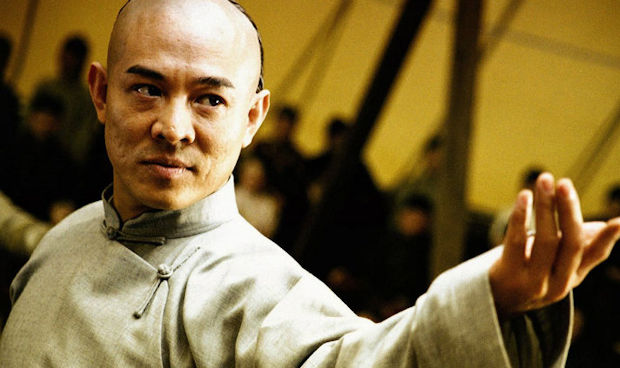
Selected films: Legend Of A Fighter, Fearless
Huo Yuanjia was a martial artist in the late Qing dynasty whose story practically begs to be turned into a movie. A textbook underdog, Huo grew up as one of ten children in a family who escorted merchant caravans for a living. On account of his chronic asthma, Huo’s father forbade him to learn kung fu but he practiced by himself at night and soon became more accomplished than any of his brothers. He took on many challengers and remained undefeated, making a name for himself by defeating fighters from the foreign countries who occupied parts of China at the time. In doing this, he became admired by many as an emblem of anti-imperialism. He also founded the Jing Wu (Chin Woo) Athletic Association which is now one of the largest martial arts schools in the world.
Huo was portrayed in many films and TV series with perhaps the best of these being Yuen Woo-Ping’s Legend Of A Fighter, a no-nonsense brawler with Bryan Leung as Huo, showing off some high-octane fight choreography in the classic Seasonal Films style. More famously, Jet Li played Huo in Fearless, which takes a lavish, big budget approach typical of the mid-2000s. While an impressive movie, it did incur the wrath of Huo Yuanjia’s grandson Huo Shoujin, who (unsuccessfully) sued the producers for what he believed was a defamatory depiction.
Chen Zhen (Liu Zhensheng)
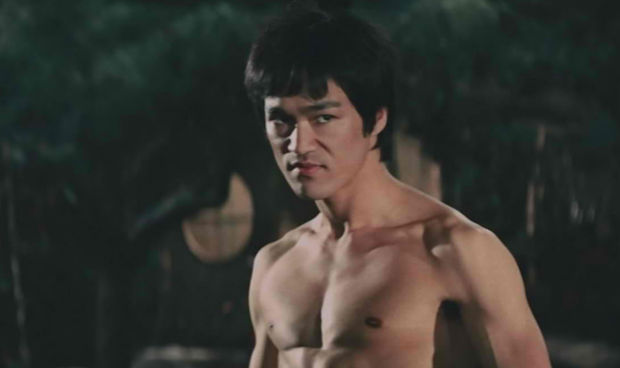
Selected films: Fist Of Fury 1 & 2, New Fist Of Fury, Fist Of Legend 1 & 2, Legend Of The Fist.
Fist Of Fury – fittingly, one of the films that kicked off a new Golden Age of martial arts cinema – begins with the death of Huo Yuanjia and then focuses on one of his students at the Jing Wu school, Chen Zhen. While Chen Zhen’s story in the film is fictional, he was inspired by one of Huo’s real life students, Liu Zhensheng (although the “Sick Men of Asia” scene is based on something a Russian fighter once said to Huo Yuanjia, just to make things confusing). Not a great deal is known about Liu Zhensheng’s real life but it’s said that he was a great admirer of Huo and, after much persistence, was accepted as his disciple, eventually becoming his star pupil and a prominent teacher himself within Jing Wu. While the real Liu Zhensheng died in poverty, Bruce Lee’s classic film reinvents him as a martyr and, in doing so, helped reignite a sense of strong national identity for China.
With the film such a success, Chen Zhen – the myth – took on a life of his own, reappearing in numerous stories and being played by many of the great martial arts superstars. In addition to Bruce Lee and, uh, Bruce Li (Fist Of Fury 2), Chen Zhen has been played by no less than Jackie Chan (New Fist Of Fury), Jet Li (Fist Of Legend 1 & 2), and Donnie Yen (Legend Of The Fist).
Wong Fei-Hung
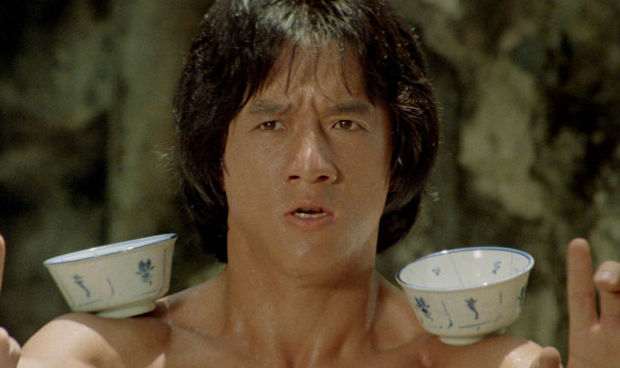
Selected films: Once Upon A Time In China 1 – 6, Drunken Master 1 & 2, Last Hero In China, Martial Club
Wong Fei-Hung has perhaps more films, TV shows and novels written about him than any other martial artist. Born in 1850 to Wong Kei-Ying (himself a legendary martial artist and one of the Ten Tigers of Canton), Wong Fei-Hung began his martial training at the age of five. In his early teens, Fei-Hung defeated a famous pole fighter and his fame began to spread. From there, he became a key figure in the development of the Hung Ga technique of fighting, inventing many styles still used today, like the Tiger Crane Fist. He taught kung fu to the navy in Canton, became right hand man to General Tong Gin, a resistance fighter of the Ching Dynasty and, after the founding of the Republic in 1912, became head instructor of martial arts for the Special Forces elite military unit. And all that’s without even mentioning his prodigal acupuncture skills and influence on Chinese medicine.
The definitive onscreen depiction of Wong Fei-Hung is Tsui Hark’s mammoth six-film series Once Upon A Time In China, which stars Jet Li (1, 2, 3, 6) and Vincent Zhao (4, 5 and the spin-off TV series) as our hero. However, Wong Fei-Hung, with varying levels of accuracy, has featured as the protagonist of classics like Drunken Master (Jackie Chan), Last Hero In China (Jet Li, spoofing his own role from OUATIC), and the stunningly underrated Martial Club (Gordon Liu). In the spectacular Iron Monkey, a film primarily about his father, Wong Fei-Hung as a child is played by then-teenage Angie Tsang, an unlikely but inspired piece of casting.
Ip Man
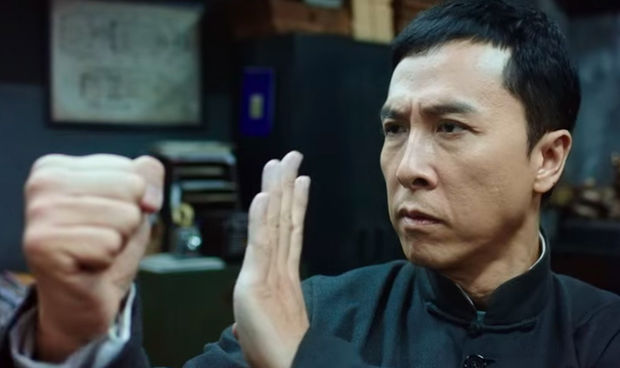
Selected films: The Grandmaster, Ip Man 1 – 3, Ip Man: The Legend Is Born, Ip Man: The Final Fight
Wing Chun master Ip Man is probably most known for being the guy who taught Bruce Lee. This is true but there’s much more to his story than that. He lived through periods of great political turmoil, dividing his life between mainland China and Hong Kong, and remains one of the most influential and respected martial artists of the 20th century. He served as a police officer, using his Wing Chun skills to apprehend criminals, he married four times and had a life colorful enough to warrant being told across three epic Wilson Yip movies starring Donnie Yen.
In addition to these (which have pretty much defined Yen as an actor in the eyes of many western audiences), Wong Kar-Wai’s masterpiece The Grandmaster takes a sweeping, epic approach to Ip Man’s story with less focus on the action and more on character (with Tony Leung as Ip Man). There are also two lower budget films by Herman Yau – The Legend Is Born and The Final Fight – if you simply can’t get enough, and representations of Ip Man are scattered across many films too.
San Te
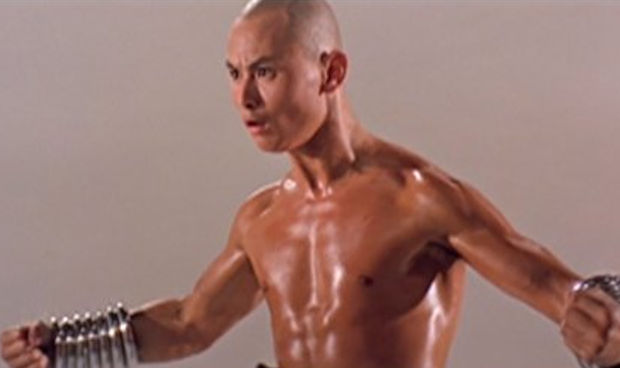
Selected films: The 36th Chamber Of Shaolin, Return To The 36th Chamber, Disciples Of The 36th Chamber
San Te was a monk whose history remains mysterious but who most likely lived in the early to mid 1700s. The story goes that he was the son of a tea merchant, who took refuge in Shaolin Temple while fleeing from Manchu soldiers, having killed one in self-defence. He trained with the monks but was notable for then teaching the techniques he learned to others outside the Temple. Although against the rules, he saw this as helping everyday people to fight their Manchu oppressors and was heavily involved with anti-Qing activities until his death, apparently at the hands of Qing soldiers.
Key parts of his story (with embellishments) are told in Lau Kar-Leung’s superb 36th Chamber Of Shaolin, which sees Gordon Liu play the young San Te with expertly controlled ferocity. He also makes an appearance in the spoofy Return To The 36th Chamber and again as an ageing master in Disciples Of The 36th Chamber (I’ve written at length about this trilogy, if you’re interested, over here). There’s a great depiction of San Te by Chan Sing in Sammo Hung’s directorial debut The Iron Fisted Monk, if you’re looking for something different, but variants of him can be found throughout ’70s kung fu cinema.
Bak Mei (Pai Mei)
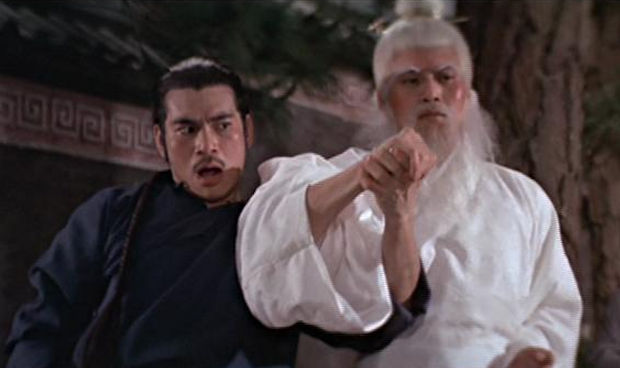
Selected films: Executioners From Shaolin, Clan Of The White Lotus, Kill Bill
Bak Mei (literally “White Eyebrows”) was said to be a traitor to Shaolin, betraying it to the Manchu, an act which led to the destruction of the original Temple. He allegedly later led Imperial troops into the second Shaolin Temple and snapped the neck of the invincible Shaolin leader Chi Thien Shu. Although a lot of the facts are distorted by myth and a lack of reliable records, Bak Mei’s story – whichever way it’s told – has led to the white eyebrow character being a shorthand for the bad guy in many traditional martial arts films.
Variations of Bak Mei (or Pai Mei) are plentiful (and many western viewers will know him through Gordon Liu’s performance in Kill Bill) but Lo Lieh’s depiction in Executioners From Shaolin is my personal favorite. In Lieh’s own directorial debut, the fantastic Clan Of The White Lotus, he reprises the role, which is an interesting choice. As an actor who was often typecast as the bad guy no matter what else he did, perhaps Lieh could relate to the white eyebrow monk?
The true legends of martial arts have, for many decades, inspired the movies and there’s plenty more examples besides the ones above. If you’ve read this far, we hope you’ll have either picked up a couple of great films to watch or gained some new perspective on some old favourites. Feel free to leave your own suggestions in the comments!